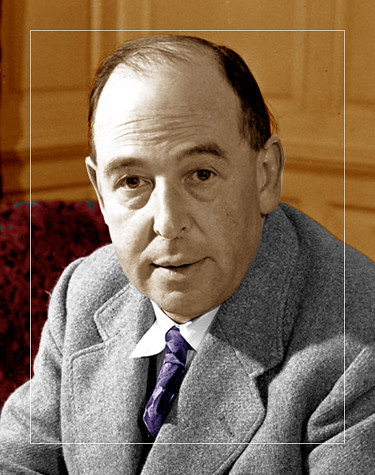
Volume XX, Issue Va: Mere Christianity
A Word for Our Time
In one way we think a great deal too much of the atomic bomb. "How are we to live in an atomic age?" I am tempted to reply: "Why, as you would have lived in the sixteenth century when the plague visited London almost every year, or as you would have lived in a Viking age when raiders from Scandinavia might land and cut your throat any night; or indeed, as you are already living in an age of cancer, an age of syphilis, an age of paralysis, an age of air raids, an age of railway accidents, an age of motor accidents."
In other words, do not let us begin by exaggerating the novelty of our situation. Believe me, dear sir or madam, you and all whom you love were already sentenced to death before the atomic bomb was invented: and quite a high percentage of us were going to die in unpleasant ways. We had, indeed, one very great advantage over our ancestors - anaesthetics; but we have that still. It is perfectly ridiculous to go about whimpering and drawing long faces because the scientists have added one more chance of painful and premature death to a world which already bristled with such chances and in which death itself was not a chance at all, but a certainty.
This is the first point to be made: and the first action to be taken is to pull ourselves together. If we are all going to be destroyed by an atomic bomb, let that bomb when it comes find us doing sensible and human things - praying, working, teaching, reading, listening to music, bathing the children, playing tennis, chatting to our friends over a pint and a game of darts - not huddled together like frightened sheep and thinking about bombs. They may break our bodies (a microbe can do that) but they need not dominate our minds.”
- C.S. Lewis
Coronavirus and the Sun
[click to read]
A Lesson from the 1918 Influenza Pandemic
Fresh air, sunlight and improvised face masks seemed to work a century ago; and they might help us now. (read more)
Mere Christianity
[click to read]
The contents of this book were first given on the air, and then published in three separate parts as The Case for Christianity (1943), (*) Christian Behaviour (1943), and Beyond Personality (1945). In the printed versions I made a few additions to what I had said at the microphone, but otherwise left the text much as it had been. A "talk" on the radio should, I think, be as like real talk as possible, and should not sound like an essay being read aloud. In my talks I had therefore used all the contractions and colloquialisms I ordinarily use in conversation. In the printed version I reproduced this, putting don't and we've for do not and we have. And wherever, in the talks, I had made the importance of a word clear by the emphasis of my voice, I printed it in italics. (click to read)
[Click to Read]
